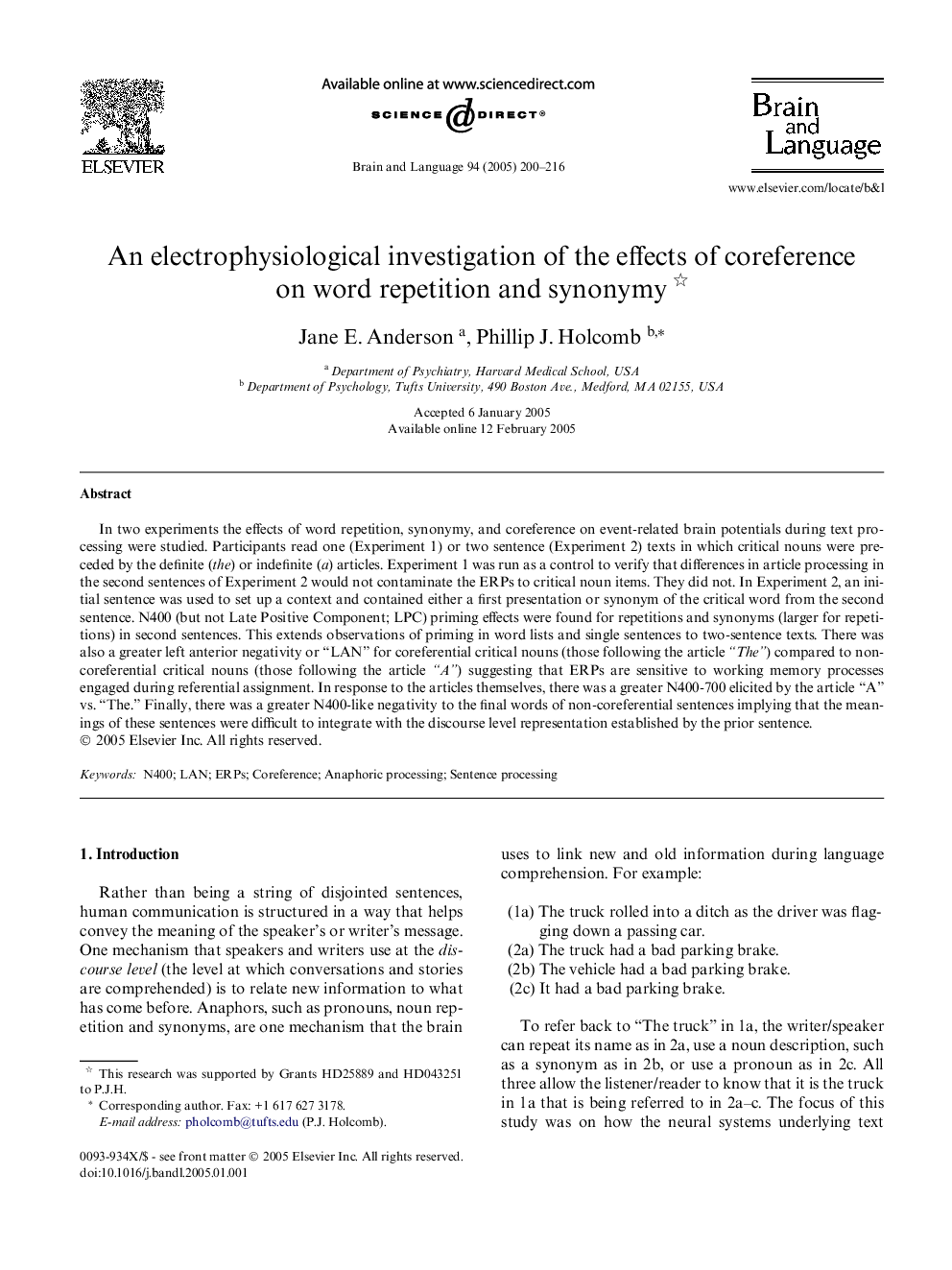| Article ID | Journal | Published Year | Pages | File Type |
|---|---|---|---|---|
| 10456546 | Brain and Language | 2005 | 17 Pages |
Abstract
In two experiments the effects of word repetition, synonymy, and coreference on event-related brain potentials during text processing were studied. Participants read one (Experiment 1) or two sentence (Experiment 2) texts in which critical nouns were preceded by the definite (the) or indefinite (a) articles. Experiment 1 was run as a control to verify that differences in article processing in the second sentences of Experiment 2 would not contaminate the ERPs to critical noun items. They did not. In Experiment 2, an initial sentence was used to set up a context and contained either a first presentation or synonym of the critical word from the second sentence. N400 (but not Late Positive Component; LPC) priming effects were found for repetitions and synonyms (larger for repetitions) in second sentences. This extends observations of priming in word lists and single sentences to two-sentence texts. There was also a greater left anterior negativity or “LAN” for coreferential critical nouns (those following the article “The”) compared to non-coreferential critical nouns (those following the article “A”) suggesting that ERPs are sensitive to working memory processes engaged during referential assignment. In response to the articles themselves, there was a greater N400-700 elicited by the article “A” vs. “The.” Finally, there was a greater N400-like negativity to the final words of non-coreferential sentences implying that the meanings of these sentences were difficult to integrate with the discourse level representation established by the prior sentence.
Related Topics
Life Sciences
Neuroscience
Biological Psychiatry
Authors
Jane E. Anderson, Phillip J. Holcomb,
